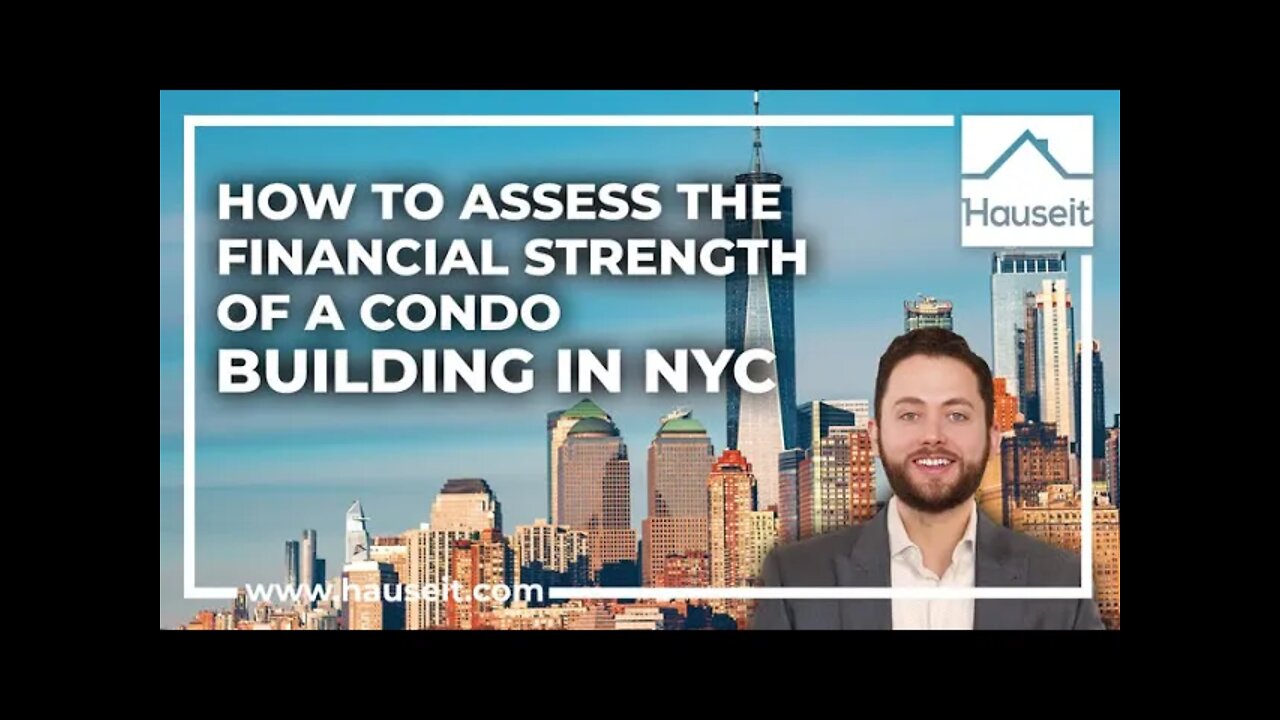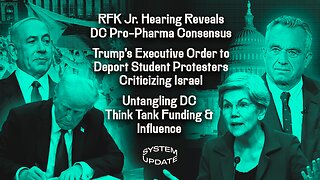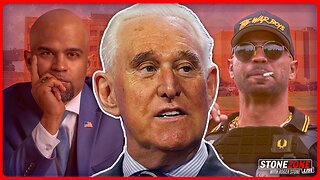Premium Only Content

How to Assess the Financial Strength of a Condo Building in NYC
Before you sign a contract to purchase a condo in NYC, it’s important to assess the financial strength of the building you’re buying into. If a condo building does not not have strong financials, this puts you at risk of common charge increases as well as possible assessments.
I’m Nick at Hauseit, based here in New York City. Check out our website https://hauseit.com to learn how to save money if you’re buying or selling real estate in New York City. So let’s get started!
For the full blog post on this topic, visit: https://www.hauseit.com/condo-coop-building-financial-statements-nyc/
Reduce Your Buyer Closing Costs in NYC: https://www.hauseit.com/hauseit-buyer-closing-credit-nyc/
Save 6% When Selling in NYC: https://www.hauseit.com/agent-assisted-fsbo/
Before going into the weeds, we want to make it very clear that there is nothing inherently wrong with a building raising its common charges or levying an assessment from time to time. The cost of living, and by extension, the cost of operating a condo building in NYC, always goes up over time. In fact, annual increases of 3% to 5% are completely normal and nothing to worry about.
Moreover, there is no getting around the fact that even the best run condo buildings will need to make costly repairs over time to things such as the roof, elevator, boiler and facade. So if you’re about to buy a condo, and you discover that there’s an assessment, that in and of itself is not a red flag.
What is a red flag is if the building never stops levying assessments, or if common charges are consistently going up more than 3-5% per year.
So, how can you assess the financial strength of a condo building in NYC?
Well, the first thing to do is obtain the building financials. You and your attorney will typically receive a copy of the financials after there’s an accepted offer. Reviewing them is part the ‘due diligence’ which your attorney handles in parallel with the negotiation of the contract itself.
However, it’s also possible to obtain building financials before you submit an offer. Most sellers and by extension, most listing agents, will have them available, so you can either ask the listing agent directly, or if you have a buyer’s agent, ask her or him to obtain them.
The first thing I like to check is the accountant’s opinion letter. This is always at the beginning of the financial statements.mYou’ll want to look for keywords such as “presents fairly”. This is a good sign of a healthy set of financials.
The second thing I like to check in the condo financial statement is the size of the reserve fund. Essentially, how much cash does the building have on hand?
A standard rule of thumb when evaluating a building’s cash and cash equivalents balance is to make sure that it has a reserve worth three to six months of the building’s normal operating expenses, in addition to any anticipated capital improvements for the next twelve months.
Now if there’s not enough cash but there’s a plan to deal with any anticipated capital improvements over the next twelve months, such as a planned special assessment, then that works as well.
Aside from the amount of cash on hand, it’s also a good idea to check the accounts receivable and accounts payable line items in the balance sheet. It’s never a good idea if accounts receivable are too high, as this may suggest that commercial tenants or unit owners are in arrears on their payments.
As a general rule of thumb, you should do further due diligence if the accounts payable balance is greater than 10% of the annual building revenue.
A normal coop or condo building should not have a high accounts payable balance. Bills in a normal building are paid promptly when received. An excessive amount of accounts payable owed to vendors may indicate that the building is undergoing financial trouble.
The next thing to look at is the building’s income statement.
Unlike a for profit business corporation, a building’s aim is not to make a profit. A building would ideally like to raise just enough revenue through common charges or maintenance fees to cover its expenses and build an adequate reserve.
So if the building covers all of its expenses but only shows a small profit, there’s nothing wrong. However, if the building continually does not raise enough revenue to cover expenses, this is an indication that a common charge increase (or assessment) may be on the horizon.
Another question to ask when looking at the income statement is: what constitutes a building’s income? Is there income from a tenant? Any source of income greater than 10% of the annual building revenue should be investigated to ensure that it will continue.
We also want to check the notes to the financial statement for additional insight. The notes may tell us more information about litigation, a recent special assessment, etc.
.
.
Hauseit LLC, Licensed Real Estate Broker
Tel: (888) 494-8258 | https://www.hauseit.com
_
#hauseit #hauseitnyc
-
 1:28:21
1:28:21
Glenn Greenwald
14 hours agoRFK Jr. Hearing Reveals DC Pro-Pharma Consensus; Trump's Executive Order to Deport Student Protesters Criticizing Israel; Untangling DC Think Tank Funding & Influence | SYSTEM UPDATE #399
158K177 -
 1:23:44
1:23:44
Space Ice
15 hours agoSpace Ice & Redeye: Van Damme's The Quest: Pirates, Clowns, James Bond & Bloodsport
52.4K3 -
 59:57
59:57
The StoneZONE with Roger Stone
12 hours agoJ6 Martyr Enrique Tarrio Describes Inhumane Prison Conditions Ordered by Biden | The StoneZONE
50.6K4 -
 16:48
16:48
Tundra Tactical
12 hours ago $11.42 earnedAffordable Medical Gear From ACETAC SHOT Show 2025
98.3K5 -
 1:46:16
1:46:16
Redacted News
15 hours agoRFK CONFIRMATION: Kennedy goes to WAR with Big Pharma Democrats in Fiery Hearing | Redacted Live
273K444 -
 57:31
57:31
Candace Show Podcast
15 hours agoBREAKING! Taylor Swift Turns Against Blake Lively & Ryan Reynolds | Candace Ep 141
247K180 -
 1:04:59
1:04:59
Sarah Westall
12 hours agoRFK Jr Report, Constitution Suspended, War Time Procedures in Place, WHO Exit, DOD w/ Sasha Latypova
85.1K50 -
 1:56:37
1:56:37
Melonie Mac
16 hours agoGo Boom Live Ep 35!
72.3K16 -
 1:01:13
1:01:13
LFA TV
19 hours agoPRESIDENT TRUMP SIGNS LAKEN RILEY ACT | BASED AMERICA 1.29.25 6pm
76.4K8 -
 1:43:07
1:43:07
2 MIKES LIVE
13 hours ago2 MIKES LIVE #172 News Breakdown Wednesday!
42K2